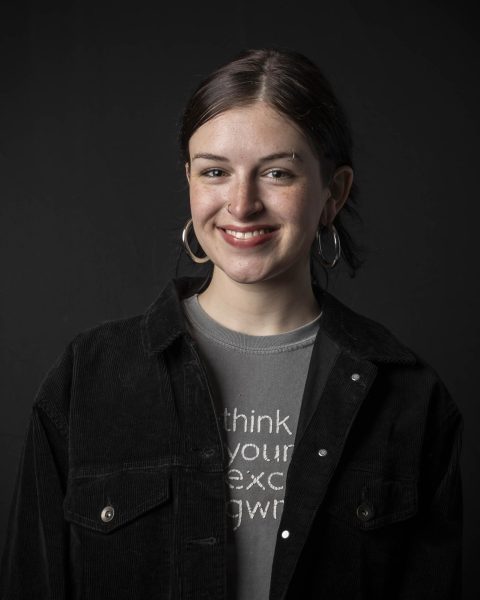
Senators are needed to represent the following academic departments: Art and Art History, Music, Theatre, History, Social Sciences, Humanities, and Audio Arts and Acoustics. Senators also are needed for second-year, third-year, fourth-year and fifth-year student representatives. In addition there is an open seat for a mental health advocate.
The first group of senators were elected on Tuesday, Sept. 12, and eight seats were filled: Esmeralda Garcia, representing commuter students; Morgan Lawson for honors students; Heather Van Well representing students living on-campus; Thea Davis for transfer students; Amelia Lutz representing LGBTQIA+ students; Layla Reif for the Cinema and Television Arts Department; Carley Brown representing first-year students and Lewis Brewer for the ASL Department.
SGA “represents the student body to the administration,” said SGA President Tyler Harding. “In our simplest form, we promote change on campus.”
Harding said the elections are divided over two weeks to be more accessible.
“We do this to be as accessible as possible to people running, and then also because we want to give people who ran the first week another opportunity to run the second week if they did not get elected to the position that they initially went after,” Harding said.
In order to run for the remaining senator positions, interested students are required to meet in the boardroom on the second floor of the Student Center on Tuesday, Sep. 19 from 5 to 6 p.m. Candidates will announce what position they are interested in and give a speech to senators who have held their position for at least one year. Those senators will then cast their vote and determine which student won.
First-year LGBTQIA+ Senator Amelia Lutz, originally ran for the Cinema and Television Arts Department senator position in the first week of elections this semester. When she didn’t get it, she ran for the LGBTQIA+ position and was elected.
SGA members had encouraged them – and the rest of the candidates who didn’t win the seat they had initially sought – to run for another position.
“They say once you’re in the room that if you don’t get the position that you want, run for something else,” Lutz said, who is a CTVA student. “I decided to run again — probably the best decision I have made. I could have sat there wallowing in my nerves, but I didn’t and chose to run again. I really do encourage people to do that.”
To run for a senator position doesn’t mean you have to be an expert on that department, but you do have to be a member of it. Honors Student Senator Morgan Lawson, encourages other students to run for senator positions, even if it means just getting involved.
“Don’t feel like you have to be an expert on everything in your department in order to go for it,” Lawson said, a first year-film and television major. “It’s perfectly okay to go with just passion behind wanting to do it and acknowledging that you’ll end up learning as you go.”
Newly elected First-Year Student Senator Carley Brown, a communications major, has already started thinking about plans she has for her community.
“I was thinking about pushing out health resources and making them more available to freshmen,” Brown said.
Harding encourages all students to get involved in SGA even if they don’t run for a senator position.
The student representative position, “is a non voting, non-elected position – and that’s basically a membership position for anyone that’s interested in being a part of SGA as a member but does not want the responsibilities of being a senator,” said two-year president Harding, a junior-film and television major.
Being involved in SGA gives students the opportunity to make a change.
“You get to see change happen because you’re able to promote student voices,” Harding said. “I think that there’s something rewarding about being a representative of the students. Working hard to accomplish a goal and seeing that goal actually take place to make the college a better place for us to go to school.”









